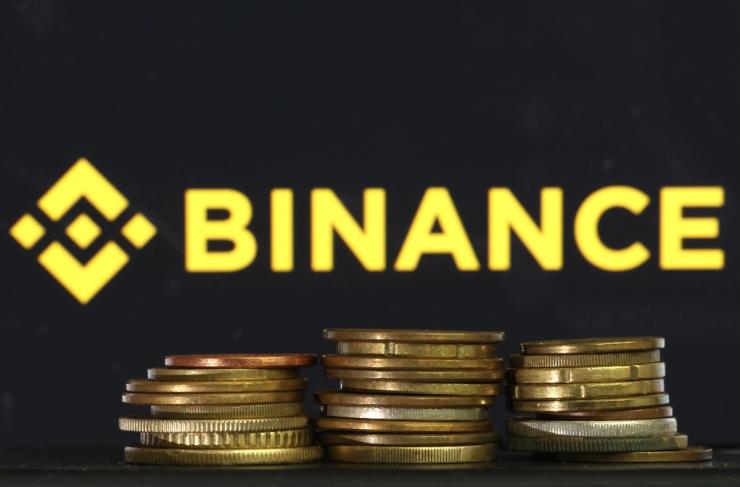The News
LAGOS — Nigeria intensified its crackdown on cryptocurrency by detaining two executives of Binance, the prominent crypto trading platform that authorities allege enabled the naira currency’s slide to record lows this month.
The arrest, first reported by the Financial Times on Wednesday, follows a move last week that saw telecom providers shut off user access to the websites of Binance, Coinbase and other crypto exchanges. Crypto platforms have been scaling down services in Nigeria in the period since. On Wednesday, Binance stopped offering peer-to-peer trades that allowed users to exchange the naira for USDT, a digital currency pegged to the U.S. dollar.
During a Tuesday briefing after hiking Nigeria’s interest rate to 22.75%, central bank governor Yemi Cardoso singled out Binance while detailing suspected manipulations of the naira on crypto platforms. “In the last one year alone, $26 billion has passed through Binance Nigeria from sources and users who we cannot adequately identify,” Cardoso said.
Alleging that some trading activity involved “illicit flows,” Cardoso said Nigerian law enforcement bodies were collaborating “to do everything it takes to not allow others to manipulate our markets.”
It is not yet clear when the Binance staff were detained. A report by Nigerian publication Premium Times said the executives, an American and a British citizen, arrived in the country on Sunday and declined a request for user transaction data at a meeting with security investigators on Monday. Binance did not respond to a request for comment.
Alexander’s view
The arrest marks an escalation in Africa’s largest economy’s new war on crypto.
In December, the central bank seemed ready to welcome crypto platforms into the financial system. It canceled a three-year order that barred banks from enabling crypto trades, laying the groundwork for a new license that companies started preparing to apply for. But Cardoso — a former Citigroup banker appointed to the central bank in September — has reverted to the view, held by his predecessor Godwin Emefiele, that crypto trading seriously undermines currency stability.
Nigeria faces soaring inflation at nearly 30% and a restive public bemoaning the rising cost of food and transportation. The central bank has pushed a flurry of tools targeting exchange rate and price stability in recent weeks. At the same time, government officials have put a lot of blame on companies like Binance, pointing to naira for USDT trades as encouraging undue demand for the dollar and undermining policymakers’ efforts.
“Currency traders told us they were acting on Binance’s rates,” one government official, who spoke on the condition of anonymity, told Semafor Africa. The official suggested that a move against Binance became necessary after the central bank’s attempt to close the gap between official and black market foreign exchange rates weakened after brief success.
Crypto transactions in Nigeria in the 12 months up to June 2023 were worth $57 billion, according to data firm Chainalysis. Beyond inflation’s role in making it an attractive hedge, Nigerians adopted crypto for personal and business-related cross-border transactions, users say.
This week’s regulatory offensive may cool those trends judging by crypto exchanges’ quick retreat, though intrepid users will find other means to keep trading crypto, like using virtual private network (VPN) apps to bypass blockades. Nigeria, which has experienced exits of multiple multinationals citing inflation and currency depreciation problems, could be giving foreign investors another reason to seek other markets.
“We are not China or India, where the markets are so large that most global companies will suck up whatever misbehavior their government does and find a way to make a deal,” said Cheta Nwanze, head of geopolitical analysis firm SBM Intelligence in Lagos. A crypto crackdown approach involving arrests is “a lose lose situation for us,” he said.
It would be more useful for Nigeria to address the factors weakening the currency rather than focus on symptoms, said John Ashbourne, an emerging markets economist at Fitch Solutions in London. “The real cause of the depreciation is that more and more Nigerians are losing faith in the naira and prefer to keep their money in really any other currency, even a famously volatile crypto unit,” Ashbourne told Semafor Africa.
Room for Disagreement
Mark Essien, founder of hotel booking website Hotels.ng, argues that large scale crypto trades have hurt Nigerian businesses and livelihoods. He defended restrictions on the activities of exchanges. “Crypto was being abused in a way that was really causing hardship, and honestly, this loophole had to be closed,” he said on Wednesday. “I don’t think it’s going to open officially again. The Nigeria economy is small enough that the crypto trade actually affects it.” Nigeria’s gross domestic product stood at $472 billion in 2022, according to World Bank estimates, although it has shrunk in dollar terms since then amid the naira’s depreciation and slower growth.
The View From a Crypto Exchange
A picture of crypto trades by Nigerians can be seen on Noones, an exchange that also serves users in Ghana and India. Ray Youssef, the company’s head, said transactions from Nigeria have stayed steady despite the past week’s rumbles and that the central bank is exaggerating the share of illicit activity in crypto. “There’s so much good, clean business that is not being satisfied by the banking system,” he told Semafor Africa. “Right now it is easier to get on a bus with a suitcase full of cash than to use the banking system to make payments across borders. Africa is using a broken down version of the SWIFT system,” he said, referring to the global messaging network for financial transactions.


